First, Let’s Explore the Definition of Backlinks
Backlinks are connections or “links” from your website to another website, publication, journal, or article for purposes of clarification, to connect an article or quote for added weight and affirmation to your content, and expressly to increase your search engine rankings. In fact, Google has stated that quality backlinks remain one of their top three most important search engine ranking factors.
Backlinks confirm to Google and other search engines that your content is relevant to a search word or phrase. But beware! Bad or too many backlinks can do as much harm to your brand as a bad review. In the case of backlinks, it’s “quality, not quantity.”
Quality backlinks can increase the effectiveness of your SEO strategy and deliver more page views. In SEO, backlinks can refer other pages to your own website pages as well. The more quality backlinks you install, the higher your page ranks, the easier it is to earn additional backlinks from other sources to help you generate even more views.
A backlink consists of:
- A URL that is linked to your website and will take the user to that URL with one click. That click can move the user to another webpage or to an online resource, such as a magazine article or a pdf file without taking them completely off your website. The user just has to click “back” to reconnect to your site.
- A partial quote of the text from the link website or article on your homepage to tease the user with some helpful information. This “anchor text” is used to pique the interest of the reader so they will click on it to link with the other URL
What Do Backlinks Do?
Backlinks help you to promote your company or brand. They give credence to the fact that your content is useful, credible, and valuable to a user. They provide additional exposure to, or deeper details of the product or service you’re selling, and they help to create consumer awareness. They also keep the user on your website longer.
Backlinks demonstrate your expertise and your authority. The more a search engine finds your website via keywords and quality backlinks, the more clicks you’ll receive and the higher your SEO ranking. Because all search engine technology is configured with automated mathematical algorithms, the more your website and backlinks show up in organic searches, the more your expertise is recognized by the technology, and the higher your rankings will grow.
Backlinks work great with your social media marketing strategies too. By integrating backlinks into your social media pages, inside a post or comment, or on your user profile, you can significantly increase your SEO performance.
Strong link building gives the perception that the linked publisher is endorsing your product or service. Quality backlinks are telling users that they recommend your content. That they trust your product or service.
How to Build and Maintain a Strong Backlink Profile
There are basically two ways in which a search engine algorithm determines the quality of a backlink.
First, it looks at the reputation, authority, or expertise of the website, article, or pdf yours is linking to. The more the search engine algorithm finds and recognizes the authority of your website, the more valuable it can be as a source for your backlink.
Secondly, the stronger and more precise your backlink is, the more relevance it has to your website’s own subject matter and expertise. By continually updating and refreshing your backlinks, you will be able to keep your site’s reputation…and rankings.
Steps to Take
Find backlink opportunities from top referral sources
What publication is considered the “expert” in your industry? Is it a medical journal? Forbes Magazine? The New York Times? A trade magazine? A blog? Whatever your industry niches, search those publications or social media sites to find backlinks that could add validation to your content.
Find out what your target audience is linking to
Do your own keyword or phrase search. Are you selling flooring? Type in “flooring” and see what website pages come up in the search listings, then click on them and see what links they have. Search for the “top 100” blogs or articles on the subject of your industry type. Then use one or more of them to link to.
Create your own high-quality content
Not quite sure how to write a blog or article? Get your Internet Marketing company to write one for you. They know just the right keywords for your industry, and they’re experts at getting your company noticed. They also know how to insert just the right “sell words” to generate sales
Reach out
A great way to get more quality links is to ask for them. Contact other websites and publications and ask them if you can quote them in your content. Get your company posted in the local business listings in your area, like the Better Business Bureau, or other business or industry related organizations. Reach out to reporters and writers of articles or blogs in your industry’s trade magazines or your local newspapers, and represent yourself as an expert in the field from whom they can quote in their own articles. You need to blow you own horn!
Add testimonials
Ask your current customers or clients to give you a review. Quote them in a separate backlink. Use different fonts or perhaps different colors to highlight them. Testimonials can offer great “word of mouth” advertising for your company.
Maintain, maintain, maintain
Repair broken links, revise content that’s old or outdated. Add new photos or graphics. Spruce up the color palette you use. Clean up the “junk.” Remember, search engines rely on backlinks to evaluate webpages. They analyze the number and quality of these backlinks. The more intelligent and authoritative they are, the higher your domain authority will be and the more likely your website will be ranked higher.
In short, don’t ever dismiss the actual merits of adding quality backlinks to your company website. You’re building a brand. An image of excellence and superiority in your industry niche. Strong rankings and strong results come from building and maintaining a strong backlink profile.








